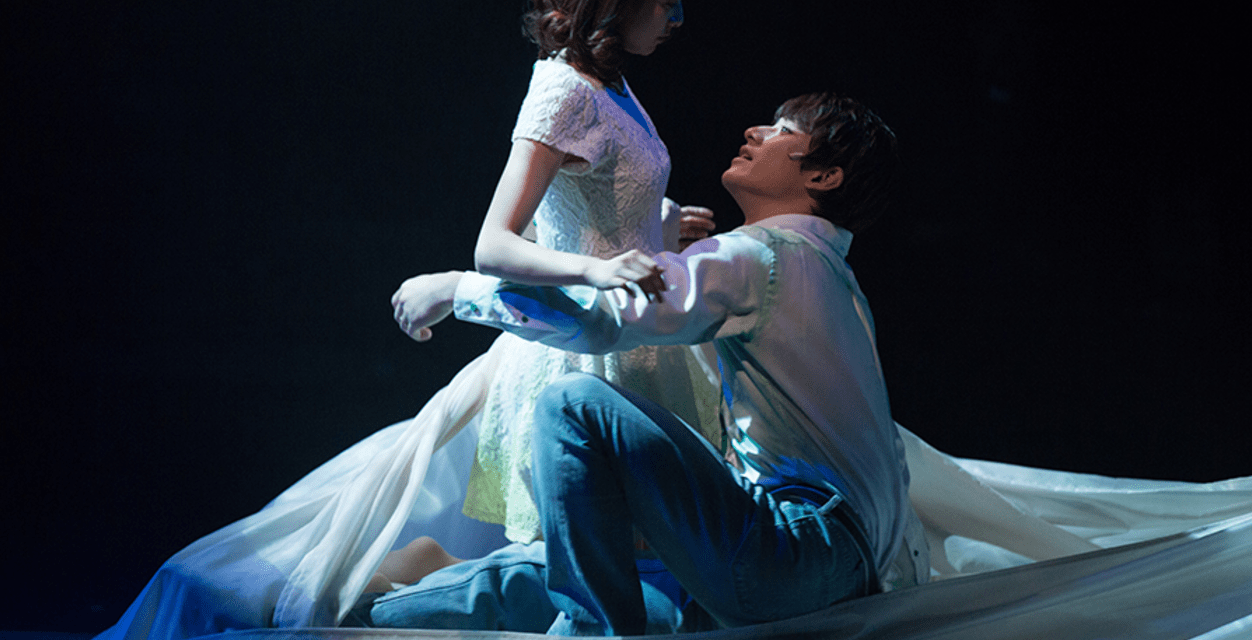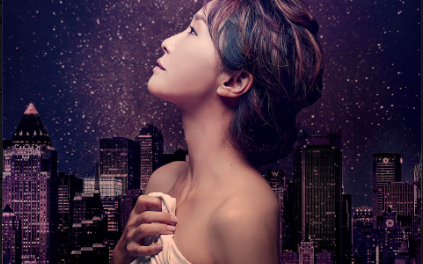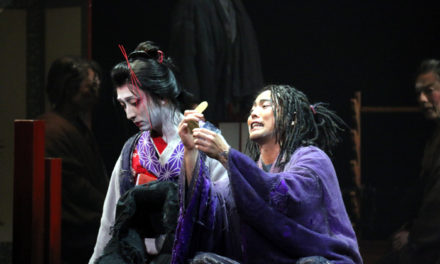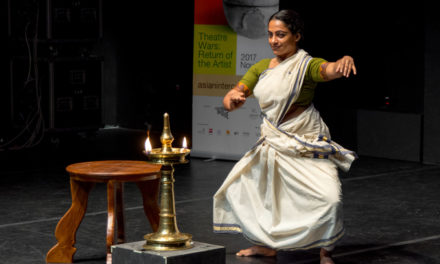At 37, director Shuntaro Fujita says he’s just hitting his prime.
“Many people say they liked being in their teens the best, but now my springtime has arrived. Mentally, I’m at the peak of my enthusiasm,” he tells The Japan Times at a rehearsal studio in central Tokyo. “I’m so thankful for everything that has led to me doing theater direction.”
With his latest production, Danny and the Deep Blue Sea, opening this weekend, Fujita is building on an impressive resume. Last year he won the coveted Yomiuri Drama Award for his Japanese version of the Broadway musical Jersey Boys, and before that came well-received productions of Take Me Out and The Beautiful Game, to name a few. He says he’s not resting on his laurels, though.
Danny and the Deep Blue Sea was written in 1983 by U.S. playwright and director John Patrick Shanley, whose own awards include four Tonys and a Pulitzer prize in 2005 for his play Doubt: A Parable, and an Oscar in 1988 for his screenplay for Moonstruck.
Set in Shanley’s gritty native borough of the Bronx in New York, the piece, written for just two actors, opens as Danny (played here by pop star Masahiro Matsuoka), a lonely misfit who has just beaten up a passer-by for some trifling reason, meets a despairing single mother named Roberta (Kate Doi) in a bar.
As the pair drink, commiserating over their life stories, they become more and more attracted to each another. They head to Roberta’s to try and fill the void with passion, but is this a one-night stand, or is it more?
In odd contrast to his current optimism, Fujita confesses that, like Danny, he was a bit of a misfit in his youth. Born in the city of Akita, he dropped out of high school early on.
“Every morning I left home, but I couldn’t bring myself to pass through the school gates. I just wandered around and spent most of the time in a game center,” he says. “I wasn’t a recluse or a rowdy person, I just didn’t know what to do with myself.”
Fujita wasn’t lost for too long, by the time he was 20 he had passed the entrance exam for Tokyo University of the Arts, one of the country’s top institutions, after studying hard by himself and taking up a job at a shop near his home.
“I wanted to make a movie, though I wasn’t really certain that film was the best way to express myself artistically or whether I’d be better with photography or something else,” he recalls. “So when I found out there was an intermedia arts department at that university, which had opened three years earlier in Ueno Park, it looked great because the courses covered such a broad range.
“I was also really lucky because lots of top artists were teaching there, including my favorite photographers Tokihiro Sato and Daido Moriyama, the artist Katsuhiko Hibino and the dramatist Hideki Noda.”
Theater didn’t register on Fujita’s radar until one of his professors urged him to take in a few plays.
“Then destiny took over after I saw a performance of Yukio Ninagawa’s streetwise Hamlet, which featured a young cast, in 2003,” he says.
It was like love at first sight. Fujita dropped out of school again, this time abandoning his elite institution after passing an audition in 2004 to join Ninagawa Studio, the master director’s on-off experimental theater troupe, which Fujita saw as a stepping stone to becoming a Shakespearean actor.
“I’d been overwhelmed by Ninagawa’s completely contemporary and electrifying direction of Shakespeare, so I instantly decided to knock on his door — and that audition was the first time I’d ever acted in my life,” he recalls. “Luckily, within a year I was on the same stage at a major theater in Tokyo as Tatsuya Fujiwara, who had played Hamlet in the fateful production I’d seen.
Fujita had nabbed a small role in Ninagawa’s production of Romeo and Juliet. He was thrilled until he realized the audience wasn’t paying him much attention during the curtain calls.
“When I told Ninagawa about it, after listening to me kindly he said it was because I had no talent as an actor,” Fujita says with a laugh. “He suggested I try working as his assistant director, and that’s what I did for around 10 years until he passed away last May.”
In addition to his work with some of the theater’s most talented actors, Ninagawa enlisted many untrained actors — seniors, through his Gold Theater, and young people, through his Next Theater.
“He was just so open to anyone who wanted to study theater with him,” Fujita says. “That’s why he let me be there, even though I couldn’t do anything properly for years and years. He allowed me to learn, and use things from his great director’s treasure chest.”
Fujita brings the story back to Danny and the Deep Blue Sea, drawing parallels between the characters’ stories and his own.
“Just as Danny lost sight of his place in society, I also felt things were beyond my control and I didn’t know what I could do,” he says. “Then, like Danny met Roberta, who accepted him and loved him, I was saved by Ninagawa.”
Thanks to this personal connection to the story, Fujita believes that, though it was written more than 30 years ago, Danny and the Deep Blue Sea is just as relevant today as it was then. And on the one-year anniversary of Ninagawa’s passing, Fujita expresses a desire to pay his kindness forward by helping the next generation of Japanese playwrights. When asked what that might be, he comes up with an easy example.
“Ninagawa wouldn’t hesitate to make changes if he discovered something that worked better,” Fujita recalls. “But he never compromised his vision in staging a work, or with people.”
Danny and the Deep Blue Sea runs May 13-21 at Kinokuniya Hall in Shinjuku, Tokyo; May 27 and 28 at Hyogo Performing Arts Center in Nishinomiya, Hyogo Prefecture. For more details about the Tokyo shows, call 03-3477-5858 or visit www.parco-play.com. For more details about the Nishinomiya shows, call 0798-68-0255 or visit www.gcenter-hyogo.jp.
This article was first posted on TheJapanTimes.com Reposted with permission. To read the original review, click here.
This post was written by the author in their personal capacity.The opinions expressed in this article are the author’s own and do not reflect the view of The Theatre Times, their staff or collaborators.
This post was written by Nobuko Tanaka.
The views expressed here belong to the author and do not necessarily reflect our views and opinions.


















